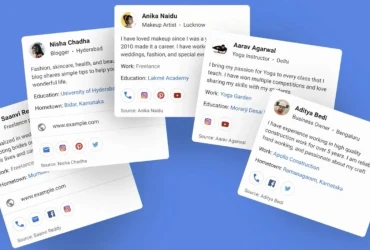In today’s digital age, having an online presence is more important than ever. Whether you’re an aspiring entrepreneur, a freelancer, or just someone who wants to share their passions with the world, a well-crafted website can be a powerful tool. But you may be wondering, “Can I create a good website by myself?” In this article, we’ll explore this question and provide insights into the process of building your own website.
Is it possible to build a website yourself?
The short answer is yes; it’s absolutely possible to build a website by yourself. Thanks to advancements in technology and the availability of user-friendly website builders, creating a website no longer requires extensive coding knowledge or a large budget. Even individuals with limited technical expertise can embark on the journey of crafting their own web presence.
Website builders like WordPress, Wix, Squarespace, and Weebly offer intuitive drag-and-drop interfaces that make it easy to design and customize your site. Additionally, they provide a wide range of templates, plugins, and features that cater to various website needs. With some time and dedication, you can create a professional-looking website that suits your goals and objectives.
How do I make a good website about myself?
Creating a website about yourself is a fantastic way to showcase your skills, accomplishments, and personal brand. Here are some key steps to ensure your website effectively represents you:
1. Define your goals:
Before diving into the design process, clarify your objectives. Are you creating a personal blog, an online portfolio, or a business website? Knowing your goals will help you make informed decisions throughout the website-building process.
2. Choose a user-friendly platform.
Select a website builder that aligns with your technical skills and requirements. WordPress is highly customizable but may require more technical know-how, while platforms like Wix and Squarespace are known for their user-friendliness.
3. Select a professional design:
Your website’s design should reflect your personality and style. Choose a template that resonates with your message and customize it to make it unique. Ensure your site is visually appealing, easy to navigate, and responsive on various devices.
4. Craft compelling content:
Content is king on the web. Create well-written, informative, and engaging content that showcases your expertise or interests. Use high-quality images and multimedia elements to enhance the user experience.
5. Optimize for search engines (SEO):
Implement basic SEO practices to improve your website’s visibility on search engines. This includes optimizing meta titles and descriptions and using relevant keywords in your content.
6. Regularly update your site.
Keep your website fresh and relevant by updating content and adding new projects or achievements. This shows visitors that you’re active and committed to your online presence.
Can I create a website for free by myself?
Yes, you can create a website for free by yourself. Many website builders offer free plans with basic features that are suitable for personal or small projects. However, there are some important considerations to keep in mind:
- Domain Name: Free plans often come with a subdomain (e.g., yourname.wixsite.com). To have a custom domain (e.g., http://www.badridutta.com), you’ll need to invest in a domain registration, which is typically not free.
- Limited Features: Free plans may have limitations in terms of storage, bandwidth, and access to advanced features. If your website grows, you may need to upgrade to a paid plan.
- Branding: Some free plans may display the website builder’s branding or ads on your site. If you want complete control over your website’s appearance, consider a paid plan.
- Support: Free plans might not offer the same level of customer support as paid plans. You may have to rely on community forums or self-help resources for assistance.
Should you make a website about yourself?
Whether or not you should create a website about yourself depends on your goals and intentions. Here are some scenarios where having a personal website can be beneficial:
- Professional Branding: If you’re a freelancer, consultant, or professional in any field, a personal website can serve as a hub for showcasing your expertise and attracting clients or employers.
- Portfolio: Artists, designers, writers, and creators of all kinds can use a website to display their work and build an online portfolio.
- Blogging: If you’re passionate about a particular topic or have expertise to share, a personal blog can be a platform for expressing your thoughts and connecting with like-minded individuals.
- Networking: A website can help you connect with a broader audience, including potential collaborators, customers, or followers.
In a nutshell, creating a good website by yourself is not only possible but also within reach for many individuals. With the right tools, dedication, and a clear vision of your goals, you can craft a website that effectively represents you or your business online. Whether you choose a free or paid approach, remember that your website is a reflection of you, so invest the time and effort needed to make it shine.

